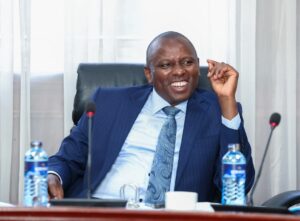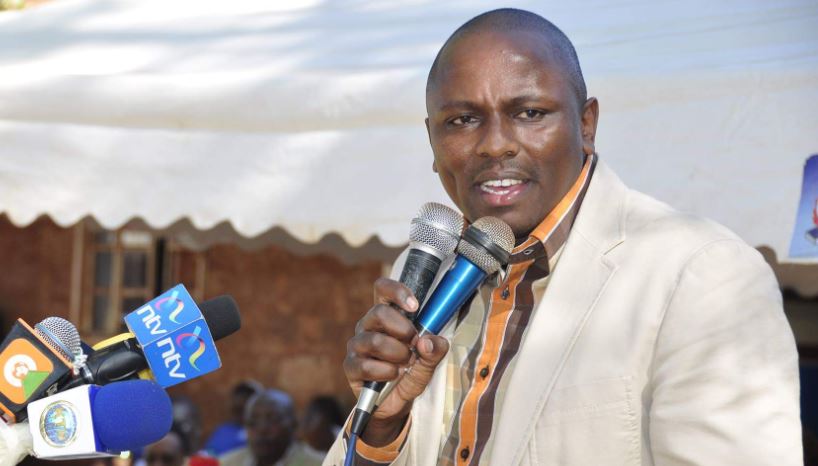The Air Passenger Service Charge (Amendment) Bill, 2025, a new legislative proposal introduced on July 10 by National Assembly Majority Leader Kimani Ichung’wah, has sparked intense public backlash in Kenya. The bill seeks to impose a steep USD 50 fee on international flights and Ksh. 600 on domestic journeys. This marks a sharp increase from the previous range of USD 20 to 40, and many Kenyans are calling it what it feels like to them: a blatant attempt to squeeze citizens while enriching a privileged few.
Far from being a routine revenue-raising measure, critics argue the bill is riddled with ambiguity and designed to facilitate corruption. The legislation proposes that the collected funds be distributed among the Kenya Airports Authority, the Kenya Civil Aviation Authority, and a newly created Tourism Fund. However, it fails to outline how these funds will be apportioned. This lack of clarity has triggered alarm bells, with many seeing it as a deliberate loophole that could enable backroom deals and untraceable allocations.
Tourism Fund: Kimani’s Shadow Vault?
The Tourism Fund, in particular, has drawn scrutiny. It is set to be managed by a board of trustees with investment powers, yet no details have been provided about who will sit on this board or how its decisions will be monitored. Critics warn that this setup mirrors past scandals, such as the infamous 2019 National Youth Service debacle, where Ksh. 9 billion mysteriously disappeared. The fear is that this new fund could become a slush pool for political cronies, operating in the shadows with little to no oversight.

Kikuyu MP Kimani Ichung’wah gestures during a past event. Photo: Kimani Ichung’wah Source: Facebook
Adding fuel to the fire, Ichung’wah has controversially classified the bill as a non-money bill under Article 114 of the Constitution. He claims it will not result in additional public expenditure. Yet this assertion has baffled observers, given that the new charges are expected to generate millions of dollars in revenue. Analysts argue that this classification is a strategic move to bypass the rigorous scrutiny that money bills typically undergo. A 2021 World Bank report already flagged Kenya’s weak budgetary controls, and this bill seems to exploit those vulnerabilities.
Public reaction has been swift and unforgiving. On social media platform X, users have voiced their outrage. One user, @aceof_shade, called the bill “looting legalized,” while @Waitherajb lamented the burden on Kenyans who are already crowdfunding for basic needs like healthcare and school fees. Civic commentator Shoba Gatimu, who first brought attention to the bill, warned of “a lot of ukora” in its execution, echoing widespread fears that the statehouse could use the fund to orchestrate investments that benefit the elite.

Kimani’s Bill Echoes Kenya’s Graft Playbook
Kenya’s long history of graft, including the 2018 mega-scandals that drained Ksh. 13 billion from state departments, makes these concerns hard to dismiss. With agencies like the Kenya Airports Authority already receiving public funding, many are asking: why the sudden need for more money, and who really stands to gain?
As the bill moves through Parliament, citizens are demanding transparency and accountability. With anti-corruption bodies underfunded and often politically compromised, the stakes are high. Unless the bill is subjected to thorough scrutiny and its sponsors held to account, it risks becoming yet another chapter in Kenya’s painful saga of public betrayal.
During parliamentary debate, Kimani Ichung’wah defended the bill as a strategic move to eliminate duplication and ensure sustainable financing for aviation and tourism-related institutions. He emphasized the inclusion of the Kenya Meteorological Service Authority, arguing that accurate weather forecasting is vital for aviation safety and disaster preparedness. However, critics remain unconvinced.
They point out that the bill gives the Transport Cabinet Secretary unchecked powers to determine how funds are apportioned via Gazette notice, raising fears of politicized allocations. The Meteorological Department, long underfunded, may indeed benefit—but observers warn that its inclusion could be a smokescreen to legitimize a broader scheme of financial opacity and elite capture.



